Nicknames/Aliases: Mr. Rochester, Fairfax, Edward
Novel: Jane Eyre by Charlotte Brontë
Role: Hero
Age: late 30s
Appearance: The book describes him to have broad and jetty eyebrows, a square forehead, a "horizontal sweep" of black hair, a decisive nose with "denoting" full nostrils, a grim mouth, chin, and jaw. "His shape...harmonized in squareness with his physiognomy." He is not considered handsome.
Occupation: Gentleman
Appearance: The book describes him to have broad and jetty eyebrows, a square forehead, a "horizontal sweep" of black hair, a decisive nose with "denoting" full nostrils, a grim mouth, chin, and jaw. "His shape...harmonized in squareness with his physiognomy." He is not considered handsome.
Occupation: Gentleman
Talents/Hobbies: Playing the piano, singing, acting, teasing
Place of Residence: Thornfield Hall, England. The author (Charlotte Brontë) is never specific about particular locations. The movies are often set in Yorkshire, probably because that is where she lived.
Virtues: Passionate, witty, kind heart, fair master, generous, honors promises and follows through with responsibility even if it pains him.
Vices: Moody, secretive, rather short temper/easily annoyed, self-centered, sometimes dishonest, violent emotions, immoral past, has too low of standards.
Family:
Mr. Rochester (deceased) – Edward Rochester’s father, who tricked him into marrying a crazy woman for her money.
Rowland Rochester (deceased) – Edward Rochester’s brother. He and Edward were not close.
Richard Mason – Edward Rochesters’s brother-in-law, a man of rather weak character, who failed to intervene and perhaps even assisted in the deception the Rochesters and Masons created with regards to Bertha Mason.
Mrs. Alice Fairfax – Edward Rochester’s housekeeper, who is very distantly related by marriage.
Spouse: First wife—Bertha Antoinetta Mason
Second wife—(future) Jane Eyre
Mr. Rochester first marries as a young man. He finds out, too late, that his family had tricked him into the marriage and that his wife is insane.
Although Mr. Rochester wanted to marry Jane Eyre before his first wife was dead, she would not agree to it. Bertha dies less than a year later, though, and then he and Jane are free to marry.
Although Mr. Rochester wanted to marry Jane Eyre before his first wife was dead, she would not agree to it. Bertha dies less than a year later, though, and then he and Jane are free to marry.
Friends: Besides Jane Eyre, the young governess at Mr. Rochester’s house, Mr. Rochester doesn’t really have “friends.” Those listed below are his acquaintance who do not wish him harm, or who are rather ‘on his side.’
Mrs. Alice Fairfax – Mr. Rochester’s kindly housekeeper, of whose company he sometimes becomes tired.
Adele Varens – Mr. Rochester’s ward, the daughter of a former mistress. It is reasonably certain that she is not his daughter.
John and Mary - Servants at Thornfield Hall before the fire, this couple care for Mr. Rochester after he is wounded, at Ferndean.
Enemies:
Blanche Ingram – Not really an enemy, but definitely not a friend. Blanche is the young woman with whom Mr. Rochester has had a rather long-standing flirtation. She is snobbish and insincere. She tries to catch Mr. Rochester for his wealth and situation. When the Ingrams hear a rumor that he is not as rich as they thought, they snub him.
Old Mr. Rochester, Rowland Rochester, and the Masons – mentioned above under ‘family.’
Portrayed By: Michael Fassbender (2011), Toby Stephens (2006), Ciaran Hinds (1997), William Hurt (1996), Timothy Dalton (1983), Michael Jayston (1973), George C. Scott (1970), Orson Welles (1943), Colin Clive (1934)
Quotes:
“When you came on me in Hay Lane last night, I thought unaccountably of fairy tales, and had half a mind to demand whether you had bewitched my horse: I am not sure yet.” (chapter 13)
“You examine me, Miss Eyre, do you think me handsome?” (chapter 14)
“I knew you would do me good in some way, at some time: I saw it in your eyes when I first beheld you: their expression and smile did not—did not strike delight to my very inmost heart so for nothing.” (chapter 15)
“I sometimes have a queer feeling with regard to you – especially when you are near to me, as now: it is as if I had a string somewhere under my left ribs, tightly and inextricably knotted to a similar string situated in the corresponding quarter of your little frame. And if that boisterous Channel, and two hundred miles or so of land, come broad between us, I am afraid that cord of communion will be snapped; and then I’ve a nervous notion I should take to bleeding inwardly.” (chapter 23)
“[Y]ou know nothing about me, and nothing about the sort of love of which I am capable. Every atom of your flesh is as dear to me as my own: in pain and sickness it would still be dear.”
“After a youth and manhood passed half in unutterable misery and half in dreary solitude, I have for the first time found what I can truly love – I have found you. You are my sympathy – my better self – my good angel. I am bound to you with a strong attachment. I think you good, gifted, lovely: a fervent, a solemn passion is conceived in my heart; it leans to you, draws you to my centre and spring of life, wraps my existence about you, and, kindling in pure, powerful flame, fuses you and me in one.”
Biography:
Mr. Rochester’s first appearance in the book is when he returns to Thornfield after his long travels, weary and dejected. Upon arriving he meets Jane Eyre, the young governess for his ward Adele Varens. Miss Eyre soon intrigues and refreshes him with her quiet and innocent manners and he is amused by trying to get her to talk. He finds her quite capable of intelligent conversation, however reluctant she is to give it; but he also finds her full of “strange contrasts,” as he later observes.
He talked with her little the first few weeks, but soon they converse more and more. He tells her about part of his past in order to explain why Adele is his ward.
Before long he is passionately in love with Jane, but doesn’t let on. One night someone stets fire to his bed, and Jane saves his life by putting out the flames. Though he knows full well who did it, he lets Jane think it was a servant named Grace Poole.
Before Jane leaves his room the night of the fire, Mr. Rochester thanks her tenderly, hinting at his feelings for her. Then he leaves unexpectedly the next morning, without seeing Jane first, to join a party of acquaintances.
In a couple of weeks he brings these acquaintances to Thornfield as his guests, paying particular attention to a beauty named Blanche Ingram, and does so purposefully in front of Jane, insisting that she come to the drawing room every evening and then mostly pretending to ignore her. His reasoning in doing so, he later says, was to make Jane as madly in love with him as he is with her.
Mr. Rochester receives a shock when one Richard Mason appears suddenly. Someone at Thornfield severely wounds Mr. Mason the night he comes, and Mr. Rochester finds a willing and capable – very little questioning, as well – helper in Jane to assist after the injury. Again, Mr. Rochester lets Jane believe that the servant Grace Poole did the harm.
After Mr. Mason leaves, Rochester and Jane take a walk and he indicates to her that it is his intention to marry Miss Ingram. Soon afterwards Jane is called away to visit her dying aunt, and she stays away for about a month, much to Mr. Rochester’s anxiety. A fortnight after her return, he tells Jane the time has come for her to take a new position, because he is going to be married. He says he has found her a position in Ireland, and no longer able to conceal her emotions, Jane becomes openly distraught at the idea of going so far away from England, and Thornfield, and him. In her distress he is suddenly proposing marriage, and at first she thinks he is insincere, even mocking. Once she is convinced of his honesty, however, she accepts him.
The wedding ceremony, taking place about a month later, is interrupted by a lawyer claiming that Mr. Rochester is already married. Richard Mason then appears upon the scene once again, witnessing this fact as the brother of Mr. Rochester’s wife.
Enraged, Mr. Rochester takes everyone (that is, Mr. Mason, the lawyer, Jane, and the clergyman) to the top story of Thornfield Hall, and there reveals his dark secret.
He was indeed legally married, but the wife, Bertha Mason, was insane, and under the care of the servant Mrs. Poole. It was Bertha who tried to burn Rochester in his bed and who wounded her brother. Mr. Rochester’s family knew before the marriage that she was mad, but wanting the money the alliance would bring, concealed it from Rochester.
Jane disappears into her room after that and stays silently within for hours. Mr. Rochester waits outside her door, and after she comes out they have a long, dramatic discussion. Mr. Rochester reveals all the particulars about his past – all shocking or horrific. He tries to persuade Jane to stay: passionately, pleadingly, violently almost. He wants to take her away, somewhere away from everyone where they can live as husband and wife.
Poor Jane undergoes struggle of the acutest kind. She loves him so very much; everything within her cries at her to comply with his wishes. But she holds onto her convictions, and unaware by him, departs in the dead of night. When Mr. Rochester discovers her gone, he is distressed not only for himself as hitherto, but now for Jane, who has left with hardly any money and nowhere to go.
Not many months pass before tragedy strikes at Thornfield. Bertha, the crazed wife, sets the whole place on fire, and then jumps from the roof to her death. Mr. Rochester tries to save her, but to no avail –except that he becomes most severely wounded by a piece of burning timber. Afterwards he is blind – one eye destroyed, the other damaged by the fire. One of his hands is so badly hurt that it has to be amputated.
He retires to a small, secluded property he owns – Ferndean, it is called – where his servants John and Mary take care of him. It is during this time that his heart most earnestly and painfully cries out for Jane. Eventually, around a year from when she left, Jane returns to Thornfield, unable to bear not knowing how or where Mr. Rochester is. Finding it a ruin, she learns the tragic story, and seeks out Mr. Rochester.
When she first comes back to him, he thinks he must be dreaming, but when he realizes it is really her, you may imagine his sentiments. She is at Ferndean for a few days while they learn what has become of one another, and then he proposes again. She accepts again, and they are married soon after. In about two years he regains the sight in one eye, in time to see their first son when he is born.
They remain very happily married, and only grow in their love and devotion for one another.
Other Pictures (Click thumbnails for bigger picture. Click the headings for more pictures.)
1934 Movie*
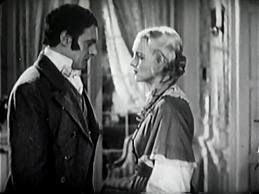
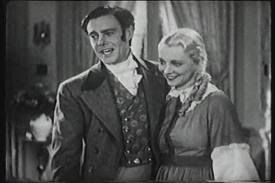
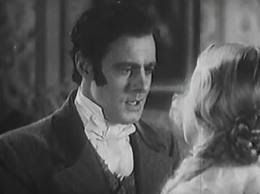
1944 Movie
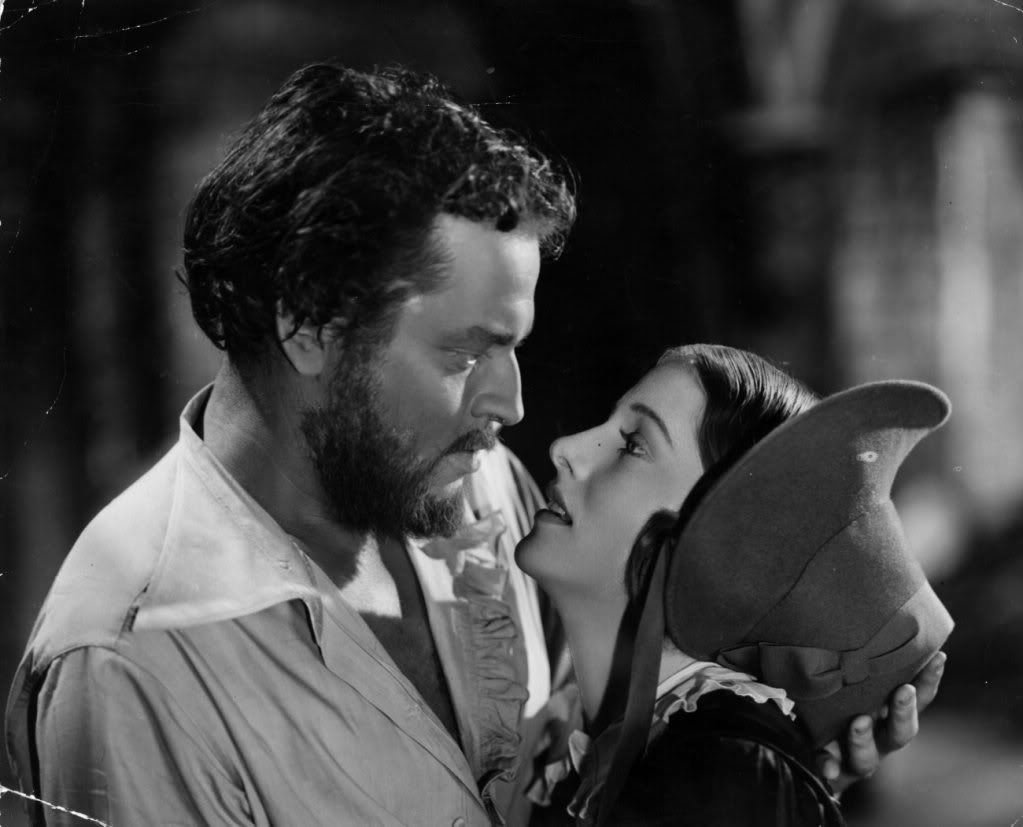
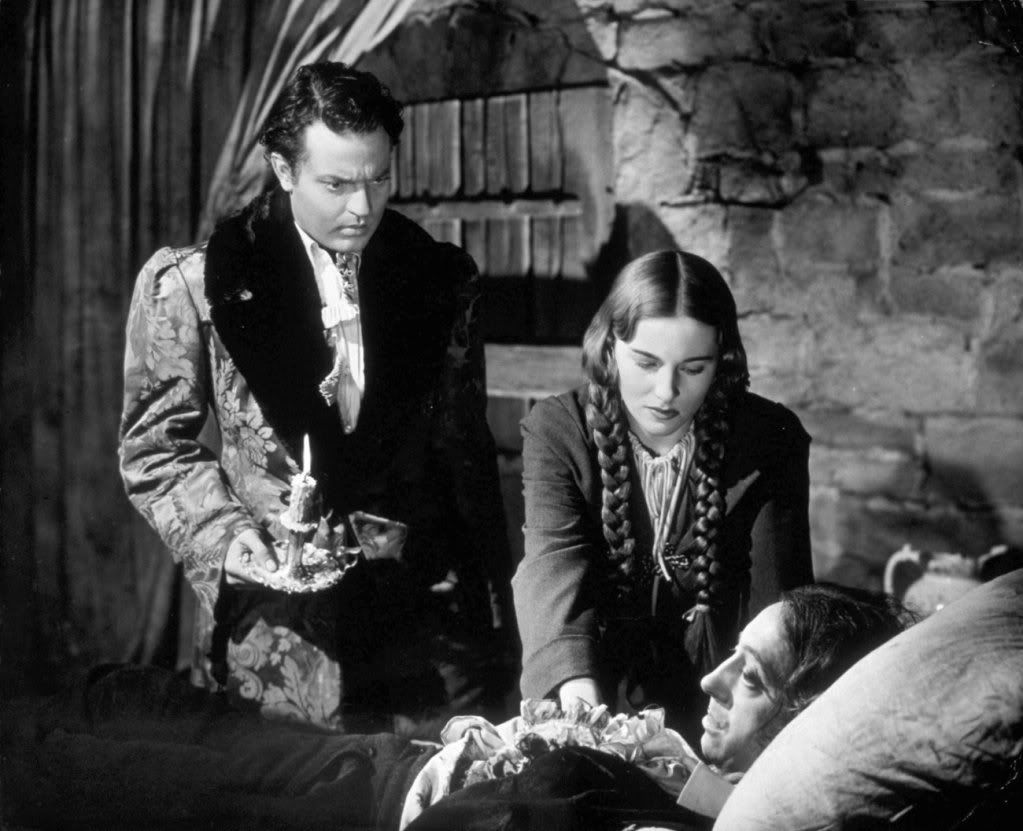
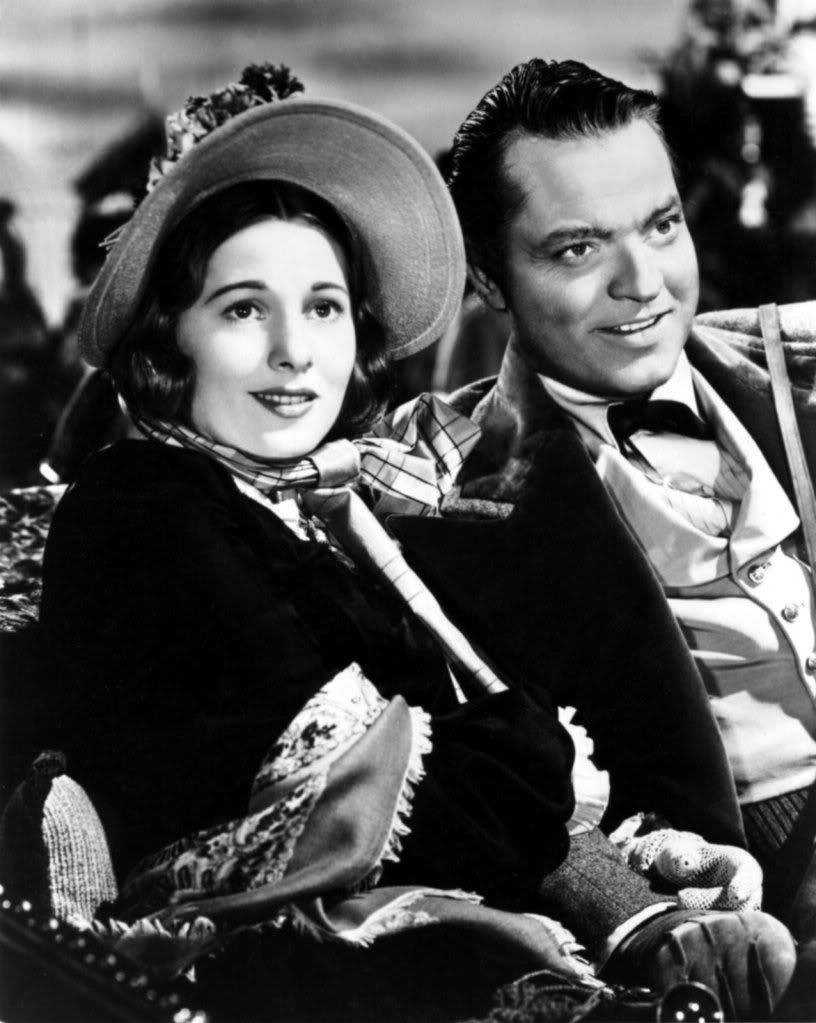
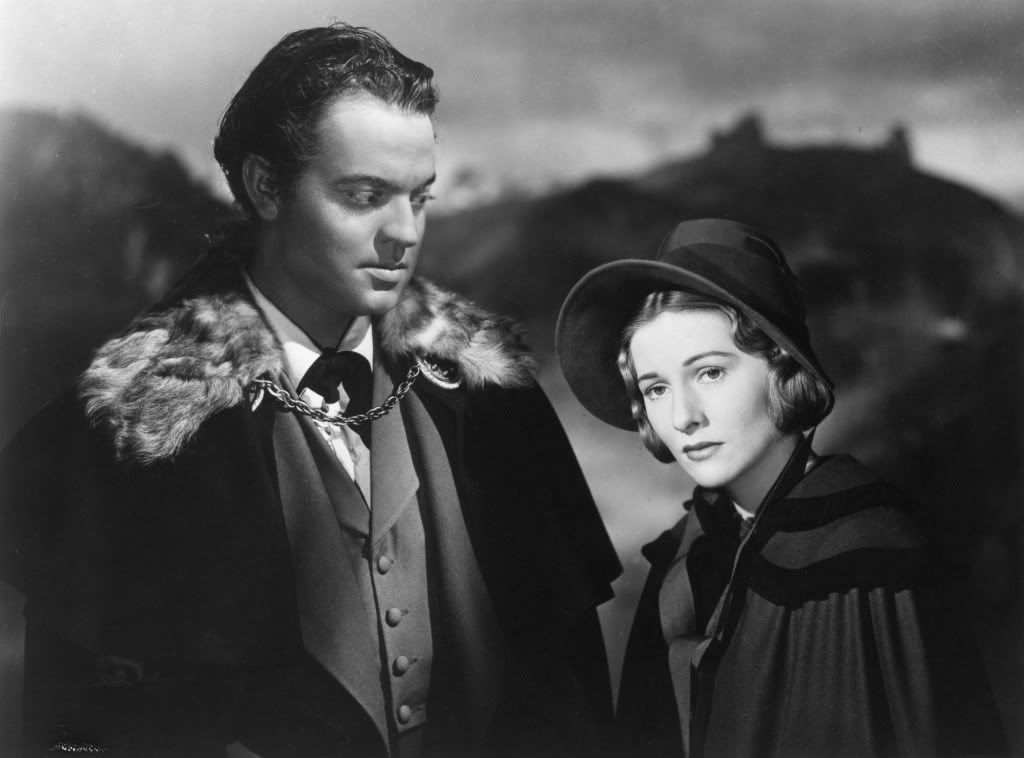
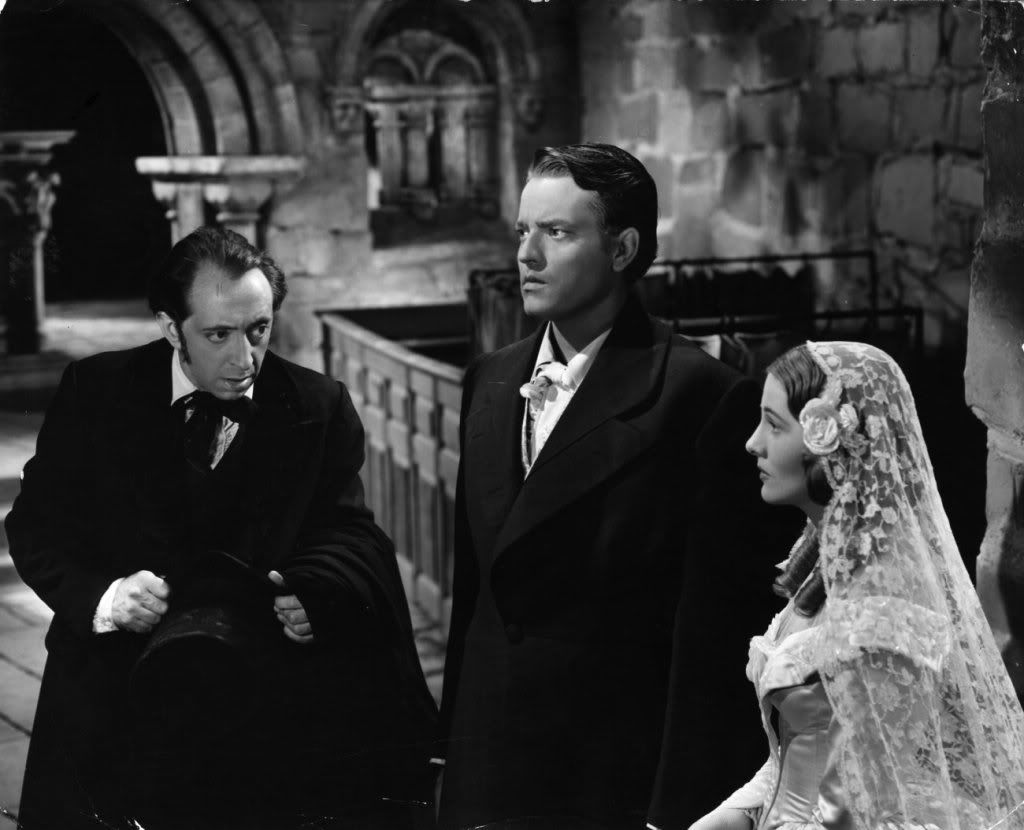
1970 Movie
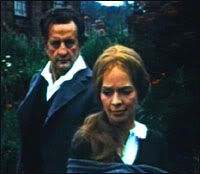
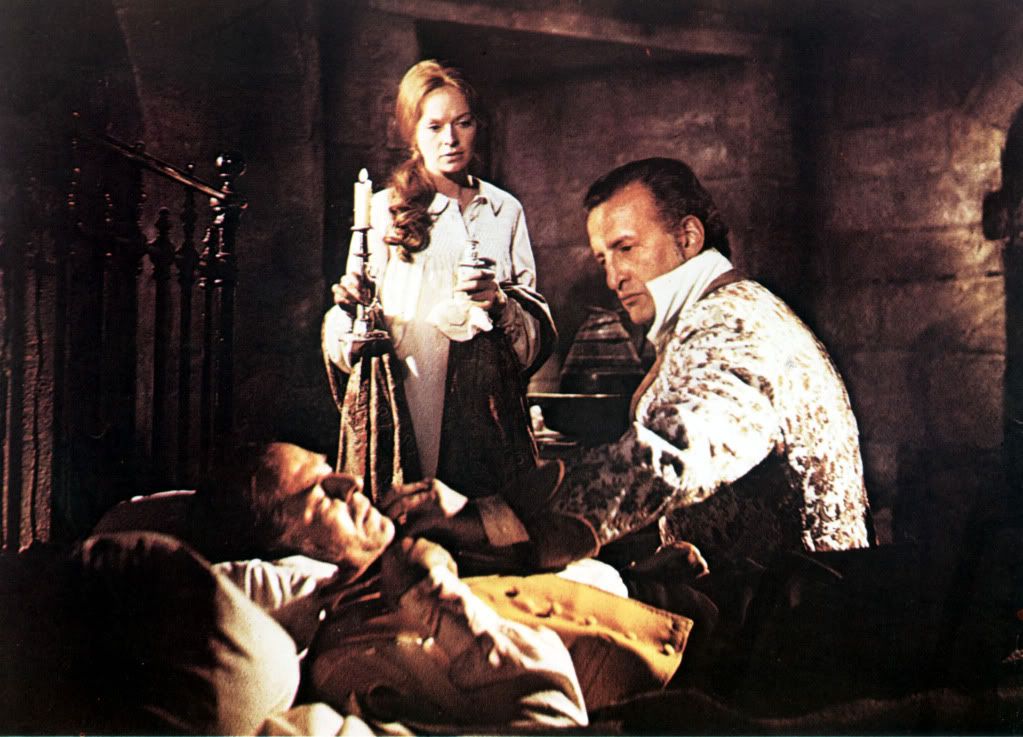
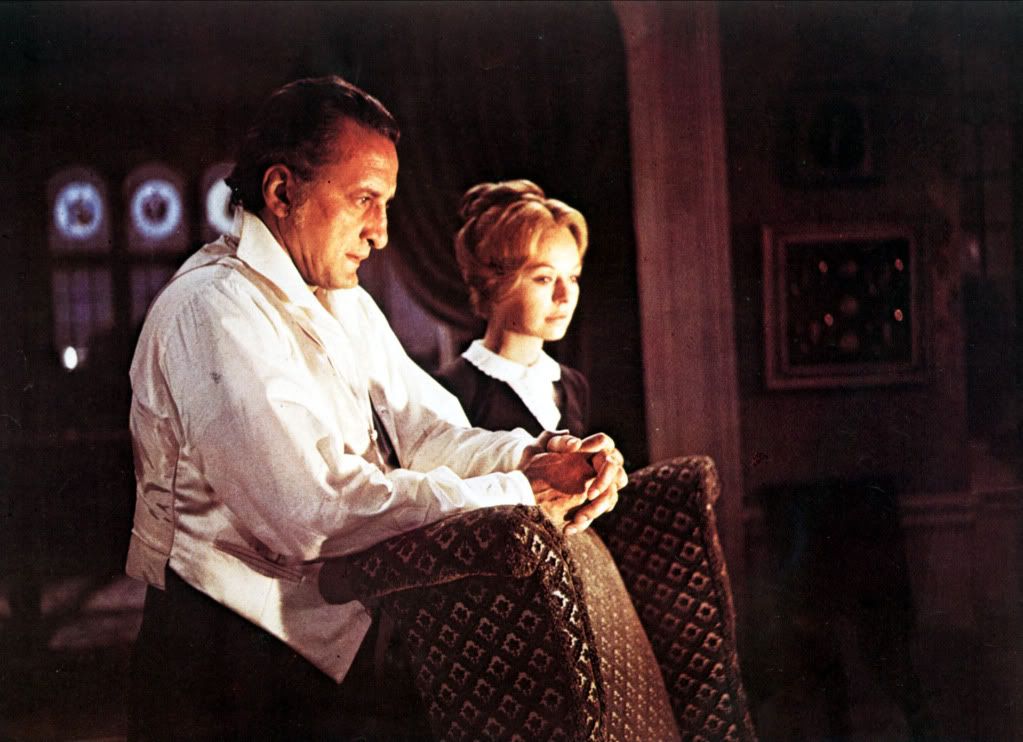
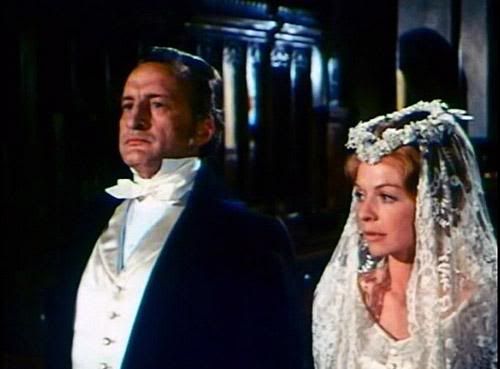
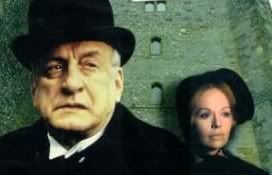
1973 Movie
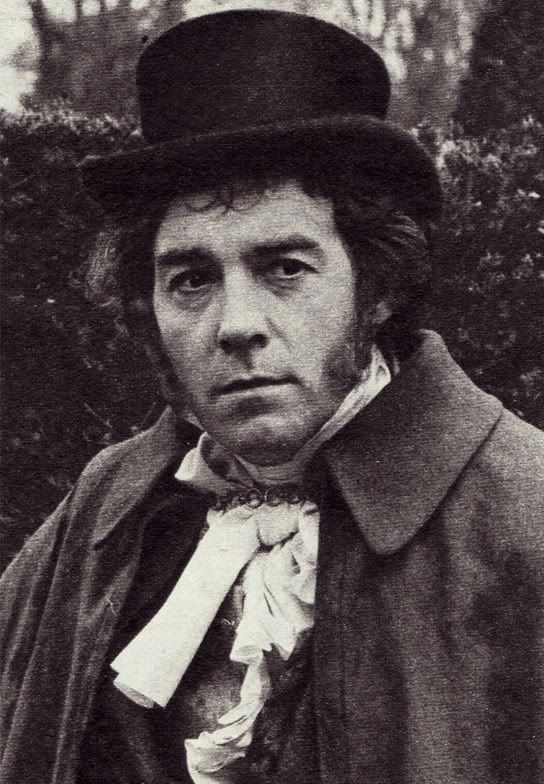
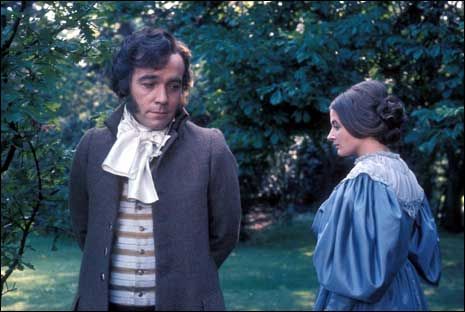
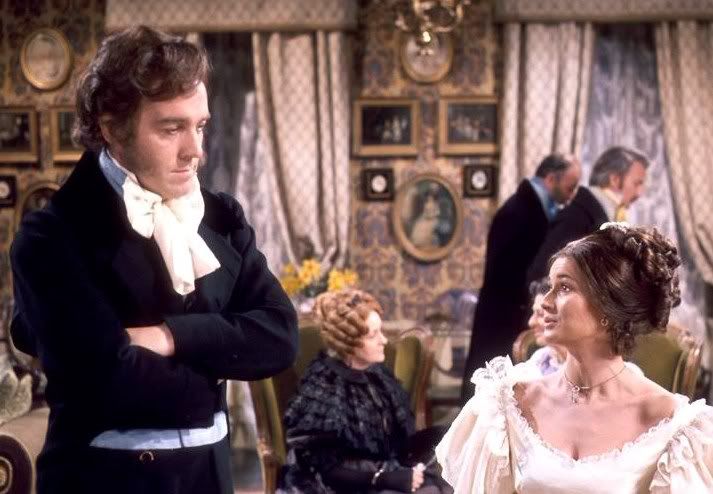
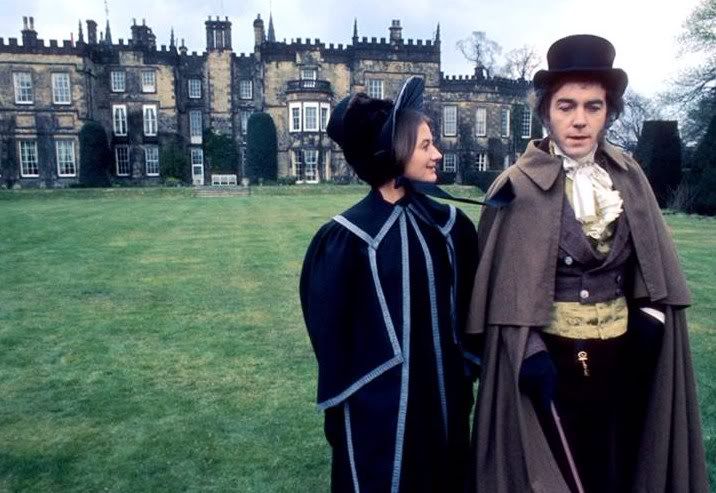
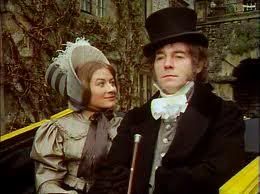
1983 Movie
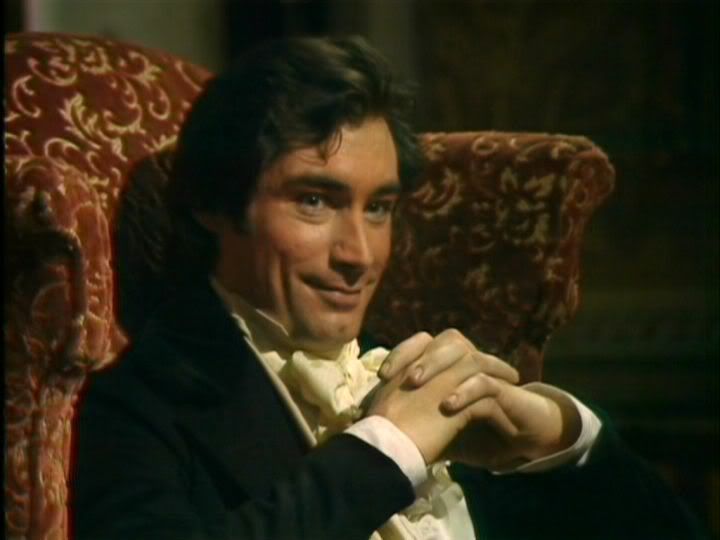
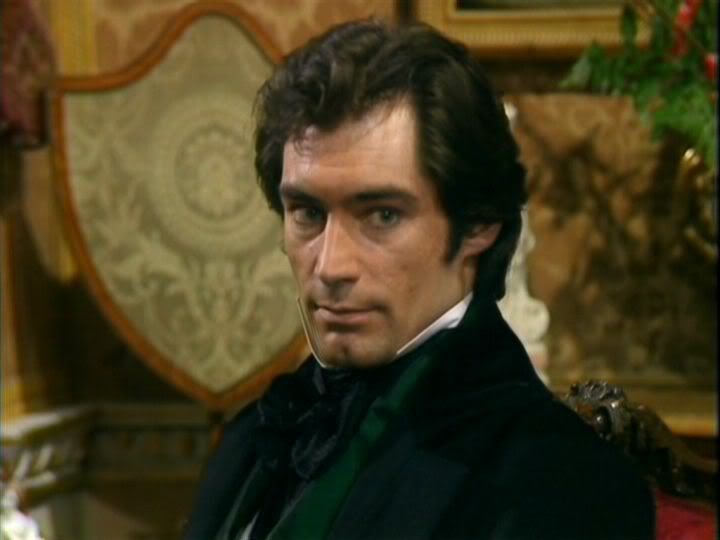
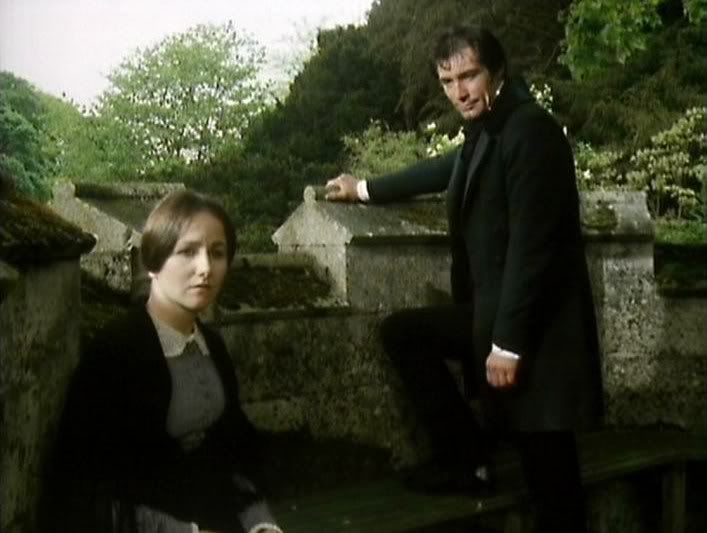
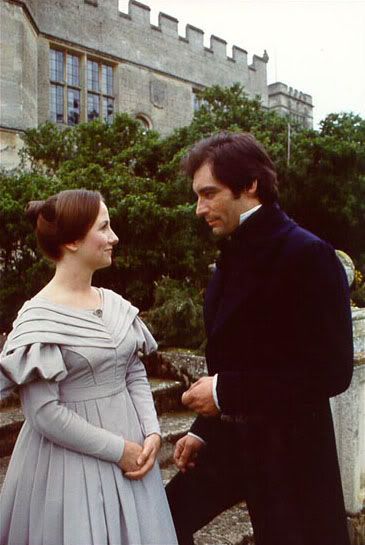
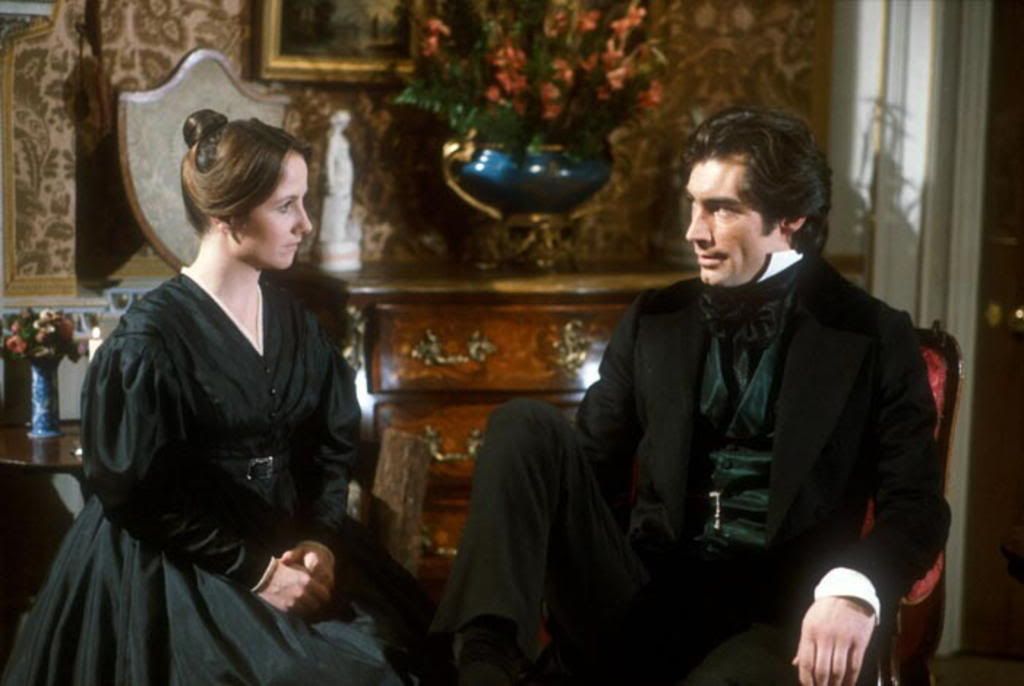
1996 Movie
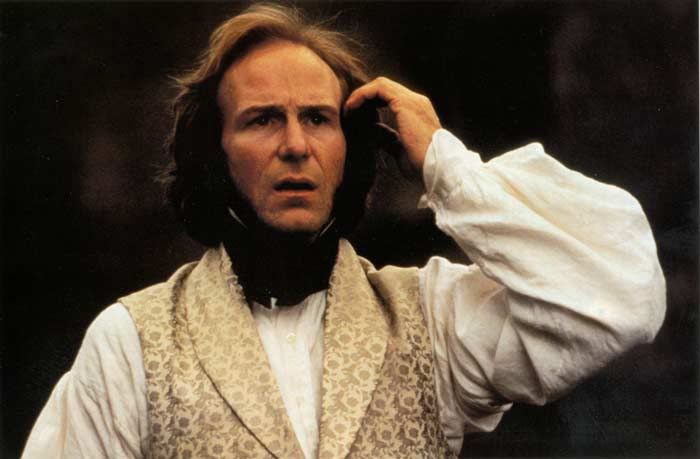
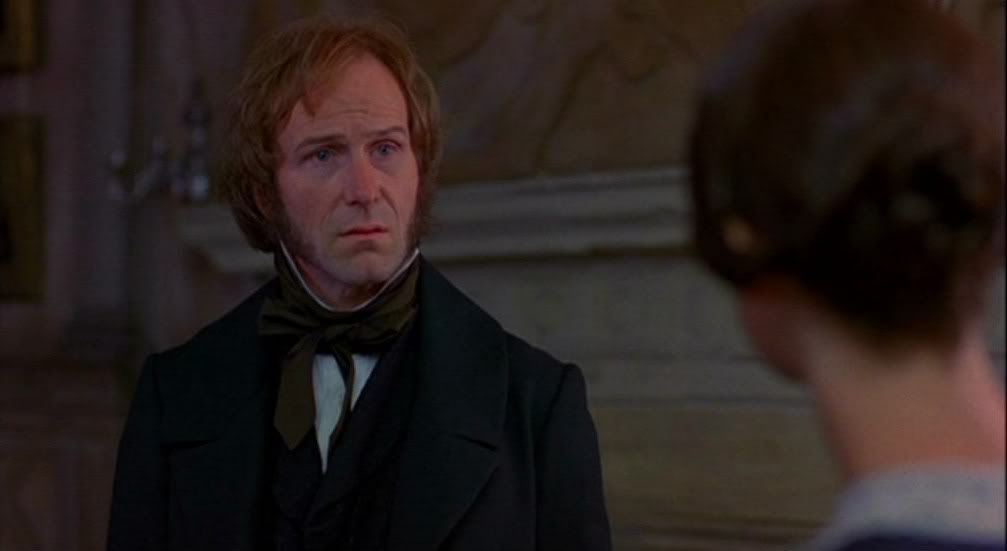
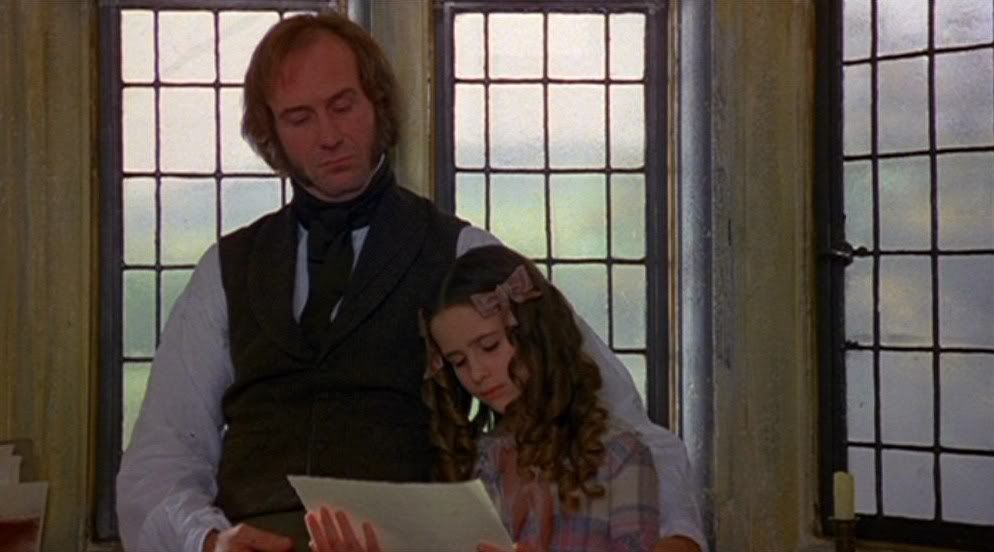
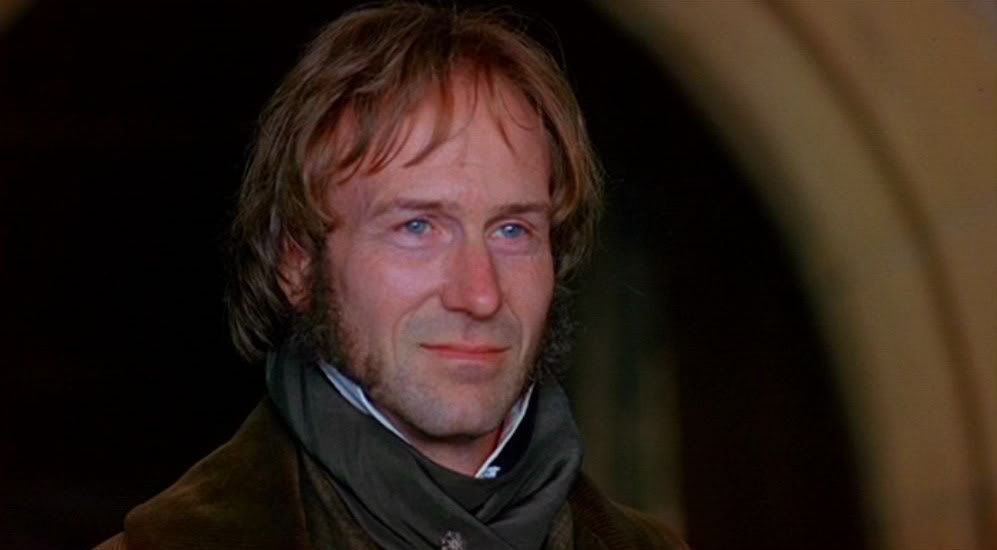
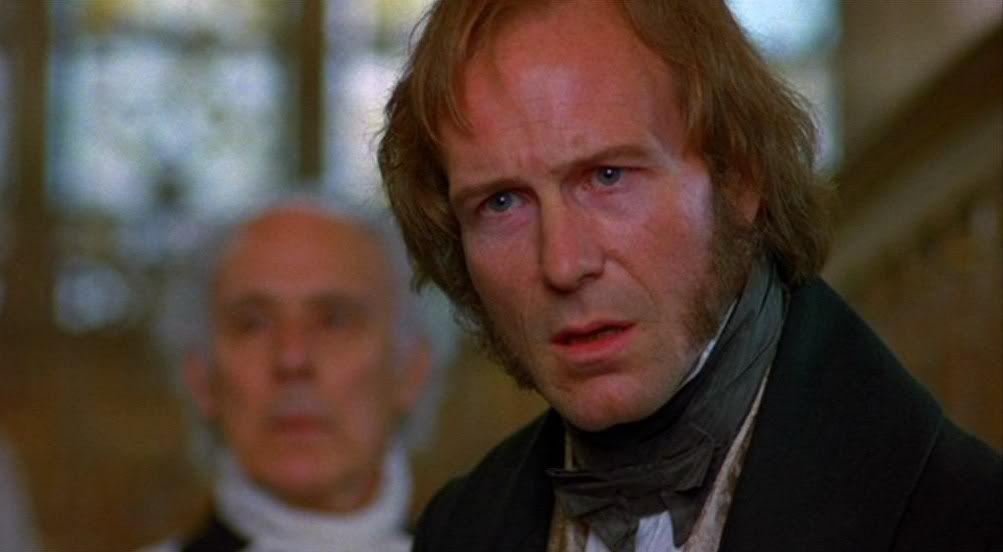
1997 Movie
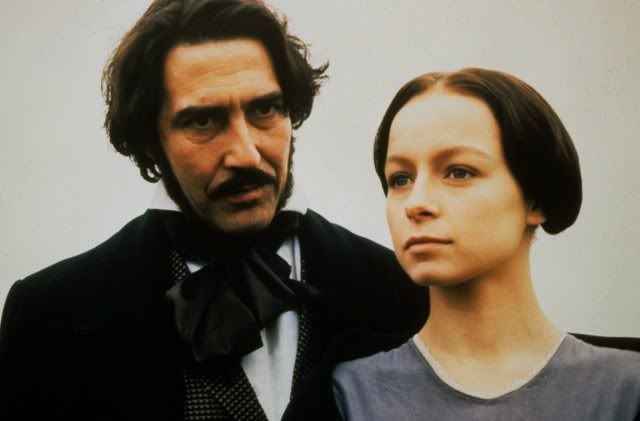
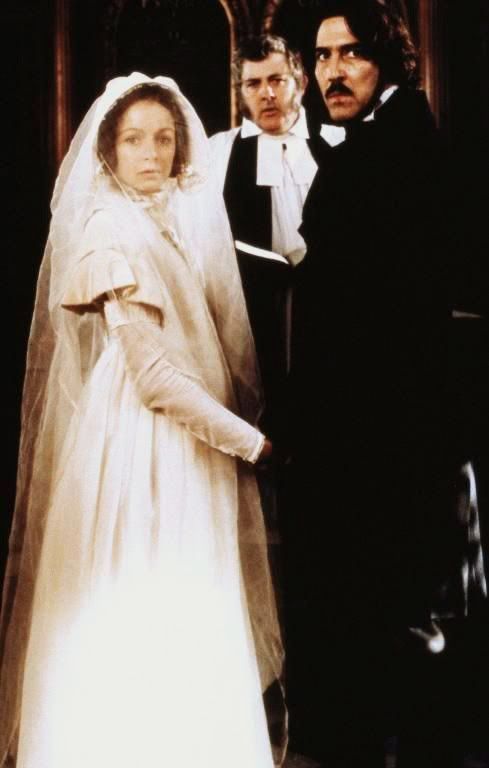
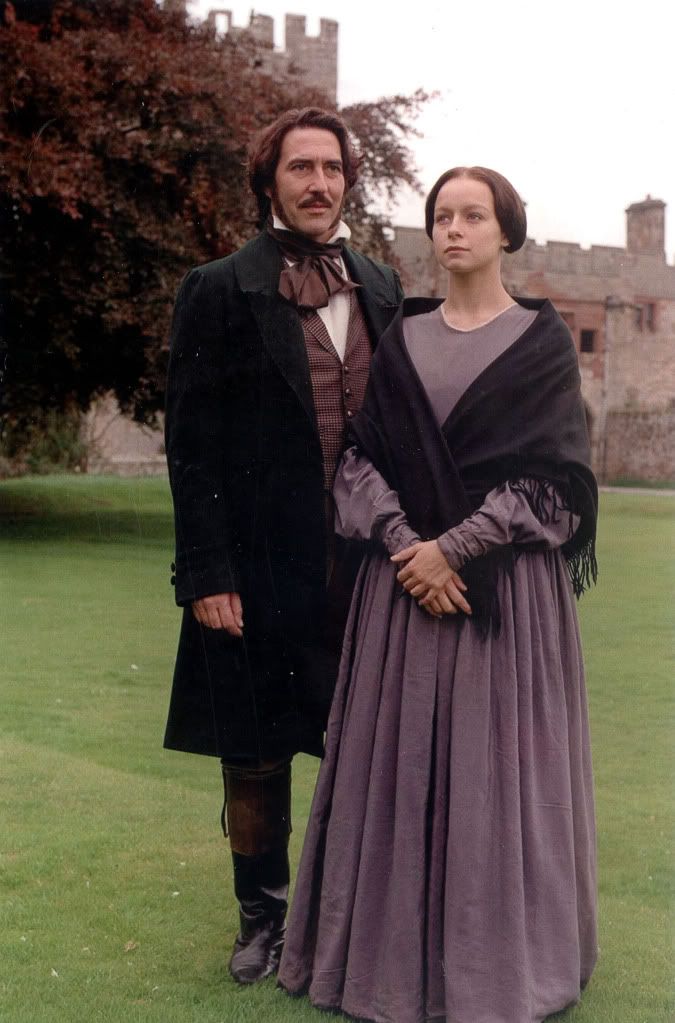
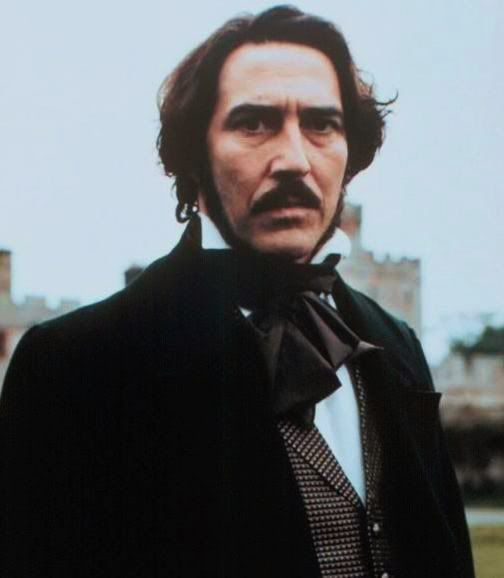
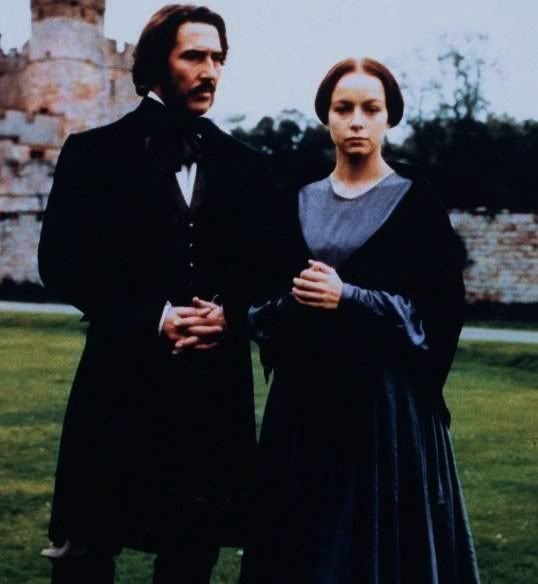
2006 Movie
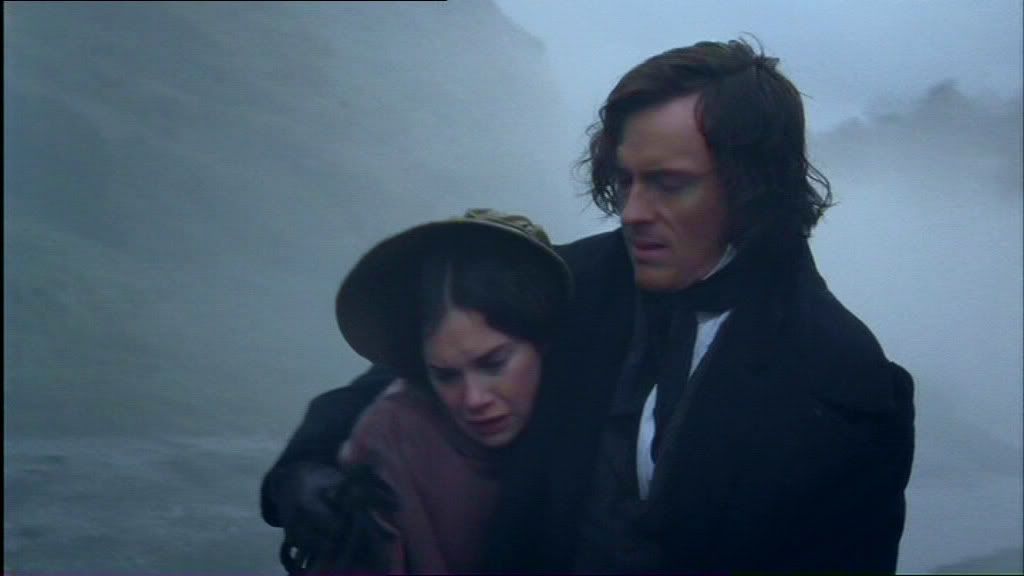
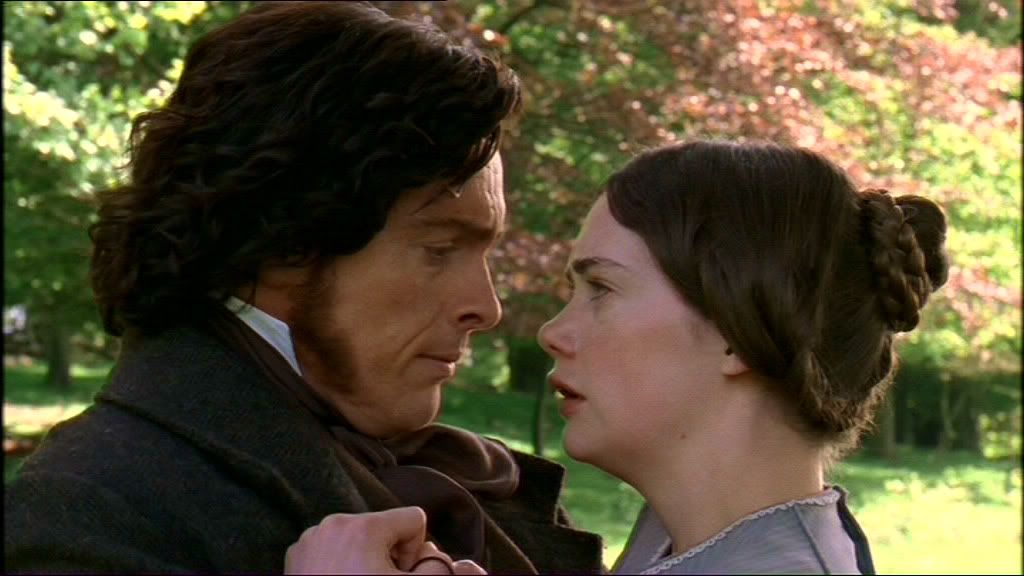
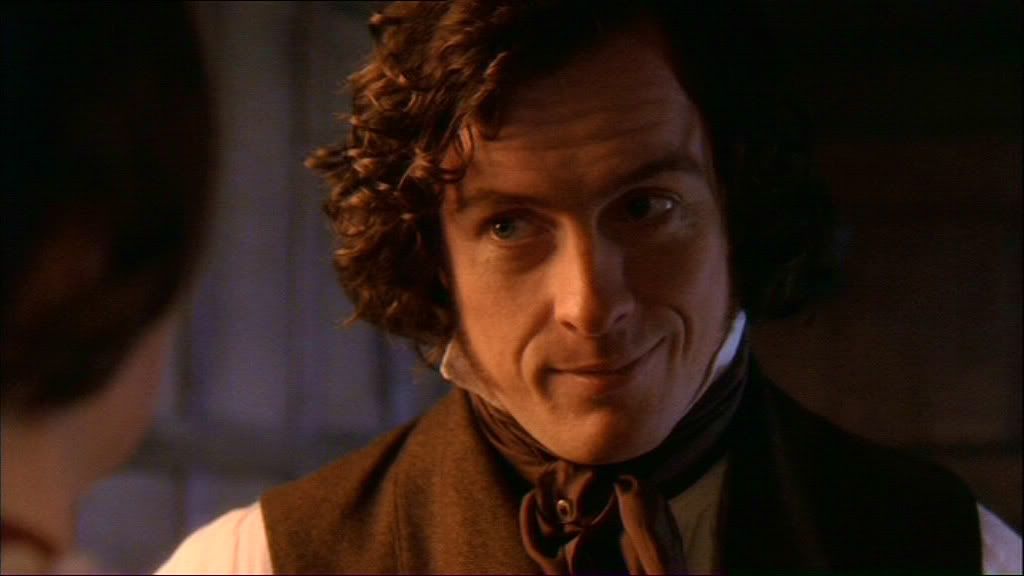
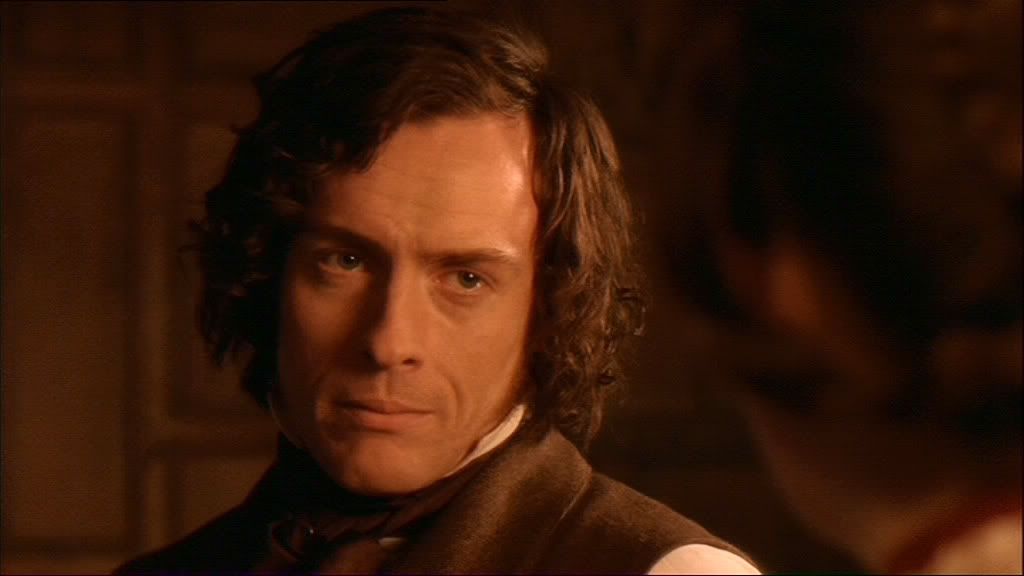
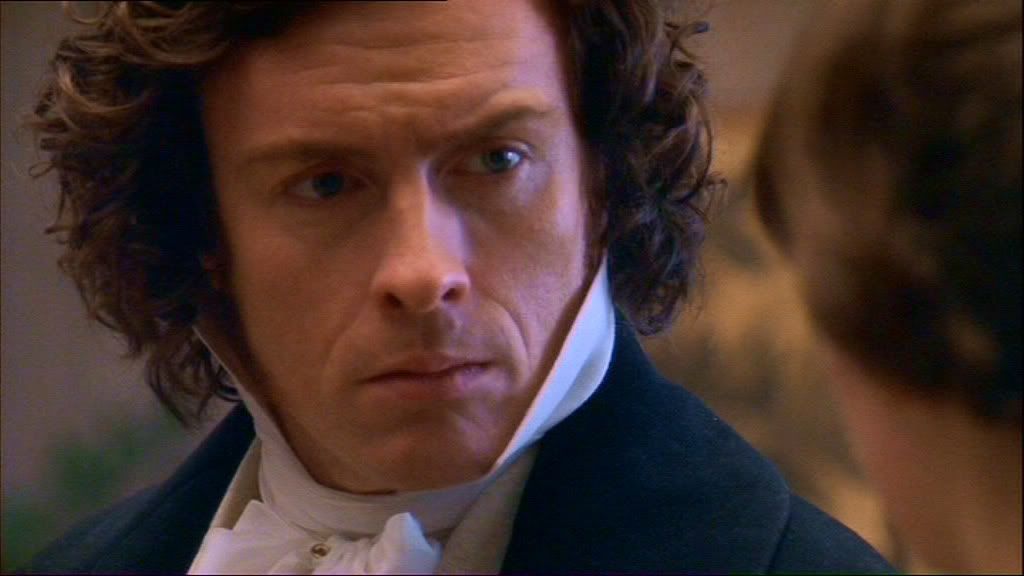
2011 Movie
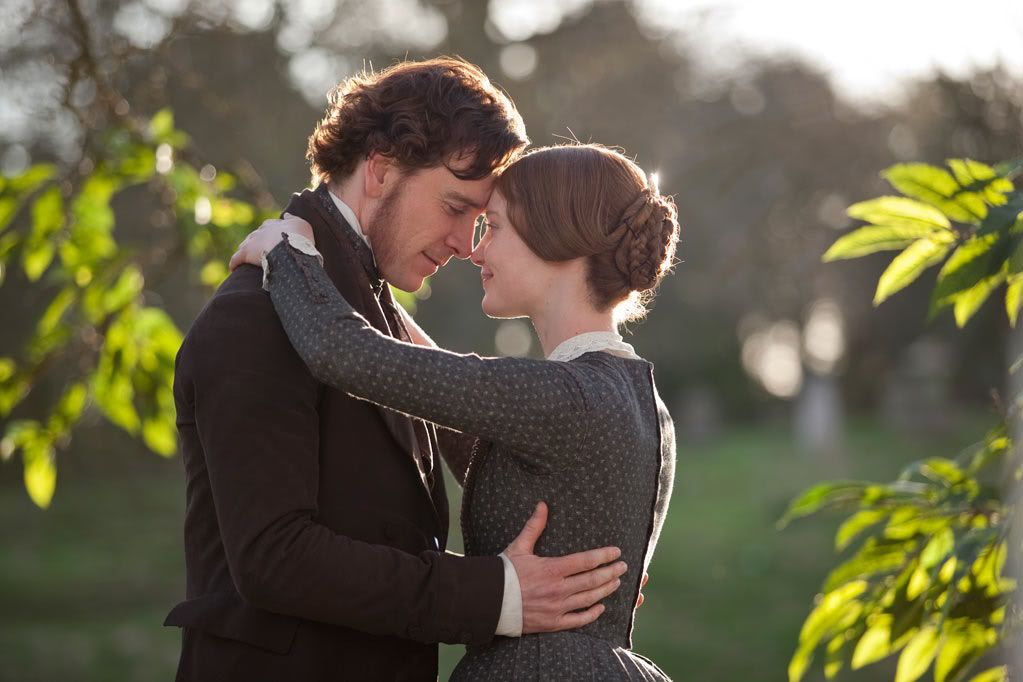
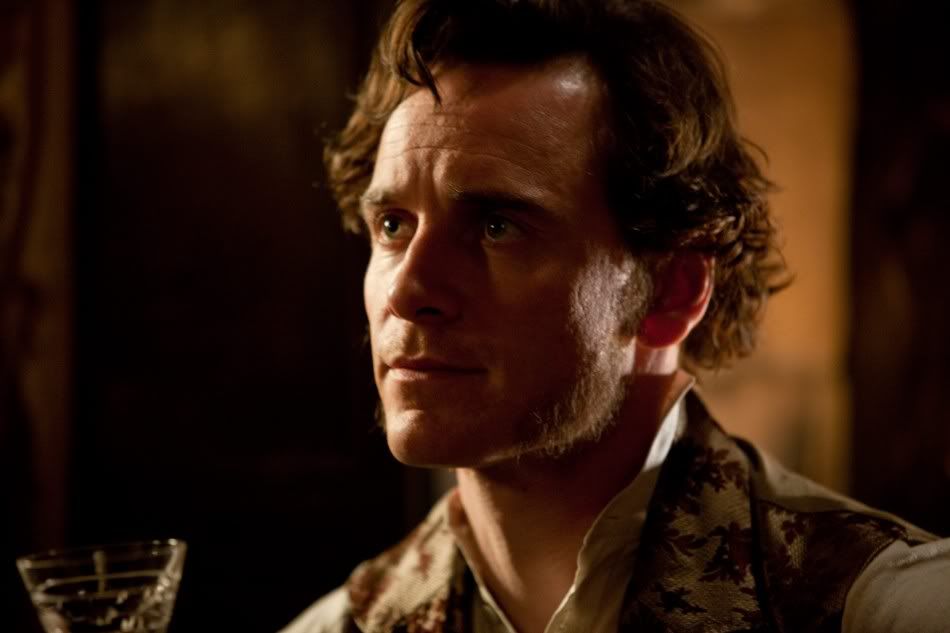
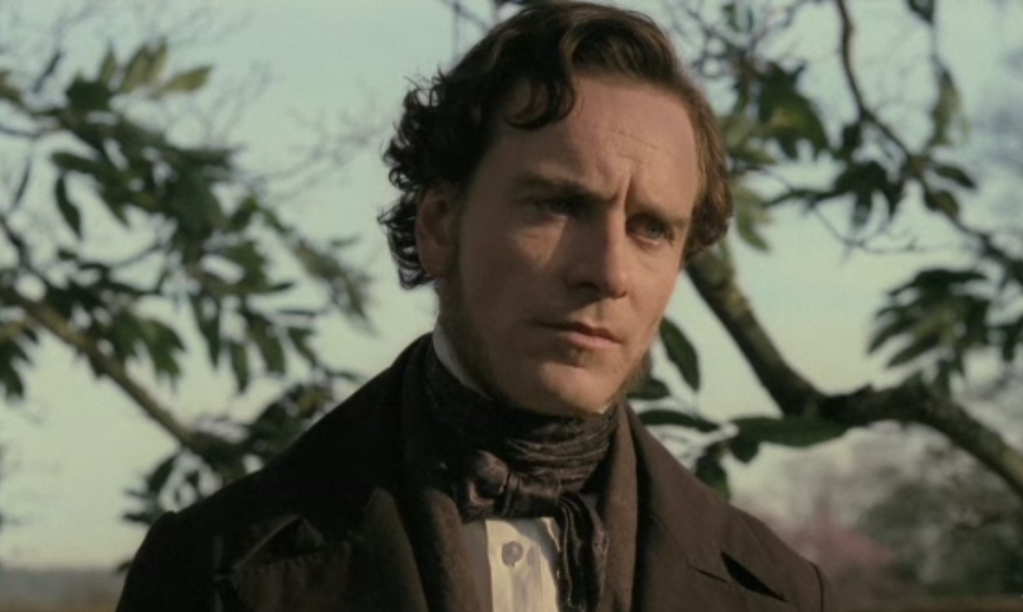
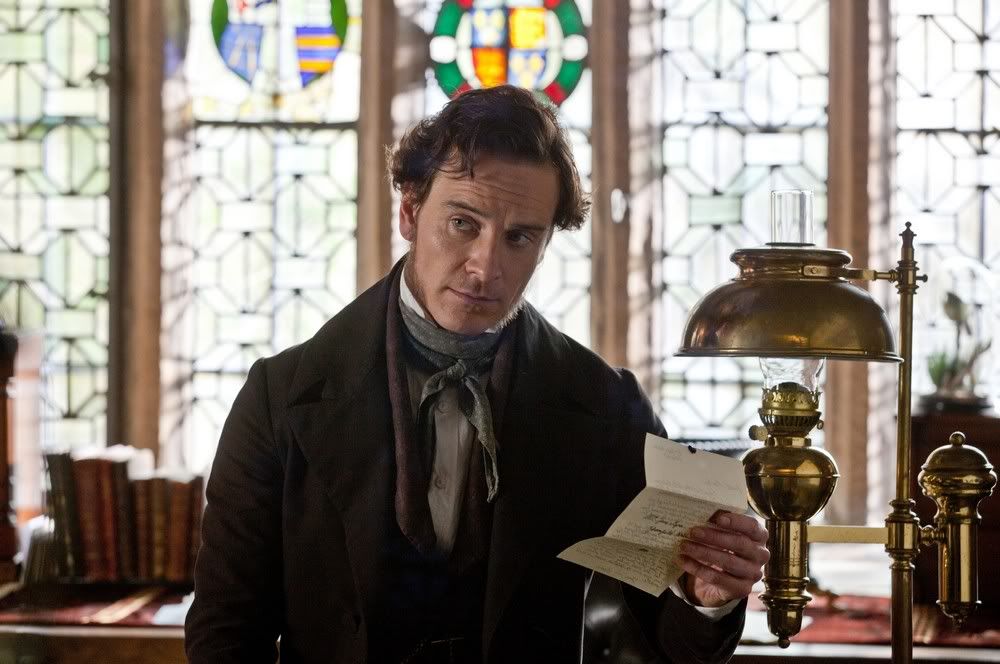
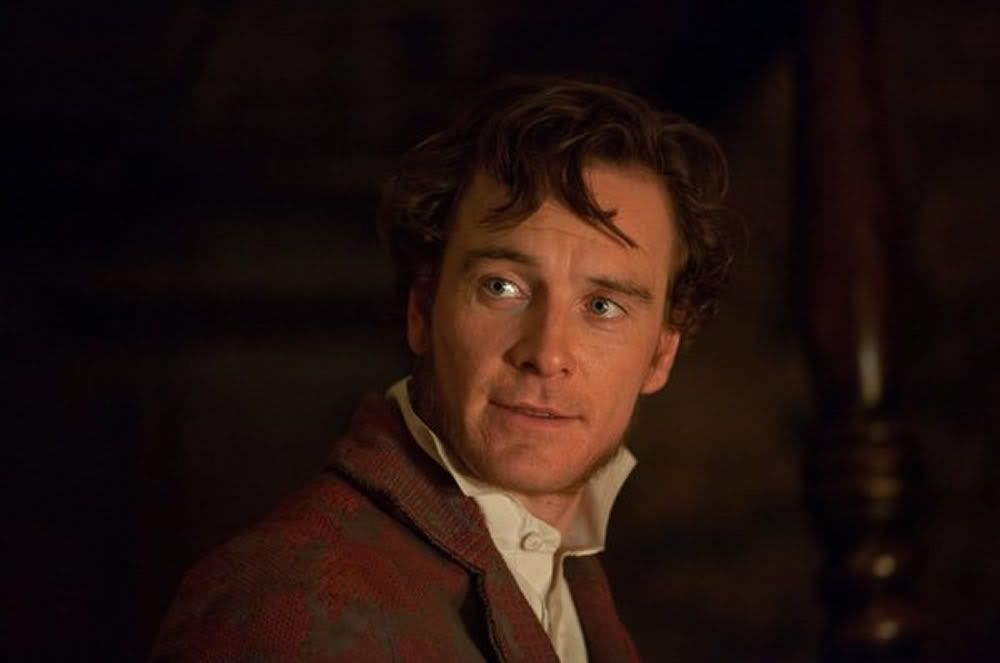
* Since there are few pictures from the 1934 version of Jane Eyre, some of the pictures that are here are actually in Jane Eyre's photo album.


Oh, I am going to love this new blog of your's! I've followed & sent out some "check out this blog" emails to friends who might be interested! :)
ReplyDeleteI will read as often as I can! ;)
Mr. Rochester is one of those fellows who does not spring to mind when thinking of heroes, but cannot be entirely dismissed either.
ReplyDeleteMy favorite will always be the 1996 version of the story. As much as I like older movies, and other wonderful actors, that version is "Jane Eyre" to me.
It must take quite a bit of effort to compile such a great editorial. Thank you!
I did not know there were so many film versions of this novel! Really must investigate them. :)
ReplyDeleteLovely summary. This blog was a great idea!
Edward Rochester is the most charismatic male character ever! Such lines he comes up with, you just can't wait to read what he's going to say next! Loveable, absolutely irresistible.
ReplyDeleteI *LOVE* Jane Eyre! I haven't seen the movies, but I've read the book, and seen the musical. If you at all like Jane Eyre, than you absolutely must see the Broadway musical! They have never released it on video (sadly) but you can find the soundtrack on youtube in it's entirety. I saw an amateur production of it, and it was amazing. The portrayal of him in the musical is *perfect*! Even people that don't like the book have loved the musical! And almost all of the quotes of his that you listed are preserved in the musical. It is amazing!
ReplyDeleteClio,
ReplyDeleteI actually have listened to the Broadway recording of the musical. (Long after I wrote this post, though.) Normally I'm not much of one for musicals, but I did like that a lot. It was so fun to see how they put some of the words into music and sort of interpreted the rest. ;) If they ever released it professionally I would definitely watch it.
I think that a musical adaptation should rarely replace the actual book, though--they should be for people to enjoy who already know the story, *I* think. Haha, the way they changed Mrs. Fairfax's character did annoy me a bit--and several other inconsistencies. But anyways, I do enjoy listening to some of the songs rather frequently. ;)
Thanks for your comment!